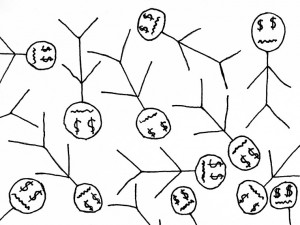People are stupid. Yes, you are. So am I. When you get a bunch of stupid people rushing together in crowds to make major financial decisions, the results are hilarious and awful and everything in between.
The classic example is Tulipomania. In the backrooms of Dutch taverns in the 1630s, amateur speculators knocked back a few drinks and tried to make their fortunes investing in then-exotic tulip bulbs. As you might imagine, prices skyrocketed, people signed contracts they couldn't afford, and when the tulip fad faded, there was plenty of debt to go around.
But before you go thinking we've learned anything since then, consider The Great Beanie Baby Bubble. There was indeed a time, not too long ago, when rabid toy collectors thought they could fund their retirements by hunting down rare versions of an inexplicably popular stuffed animal. Naturally, when the prices returned to Earth, a lot of people realized they'd made a horrible mistake, but at least they had something cute to cuddle as they wondered where their money was.
Economists have gone way out of their way to explain these phenomena. Famous First Bubbles uses the tulip craze as an example, arguing that the rapidly rising and falling prices were not the result of group madness, but instead the result of explainable market forces.
I guess this means that sound economics is necessarily founded on the unshakable bedrock of vanity, greed, shortsightedness and general human frailty. So now, if you don't mind, I'm going to invest my savings in comic books, lottery tickets, trading cards and irregular stamps.




Add a comment to: I Have Money. Take My Money.